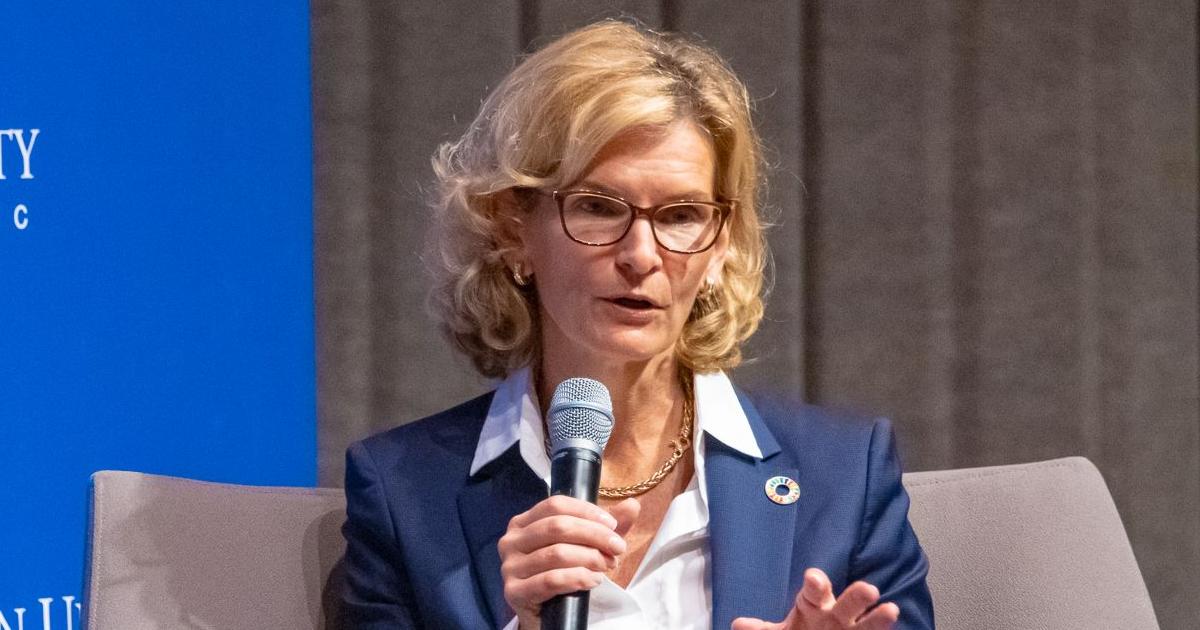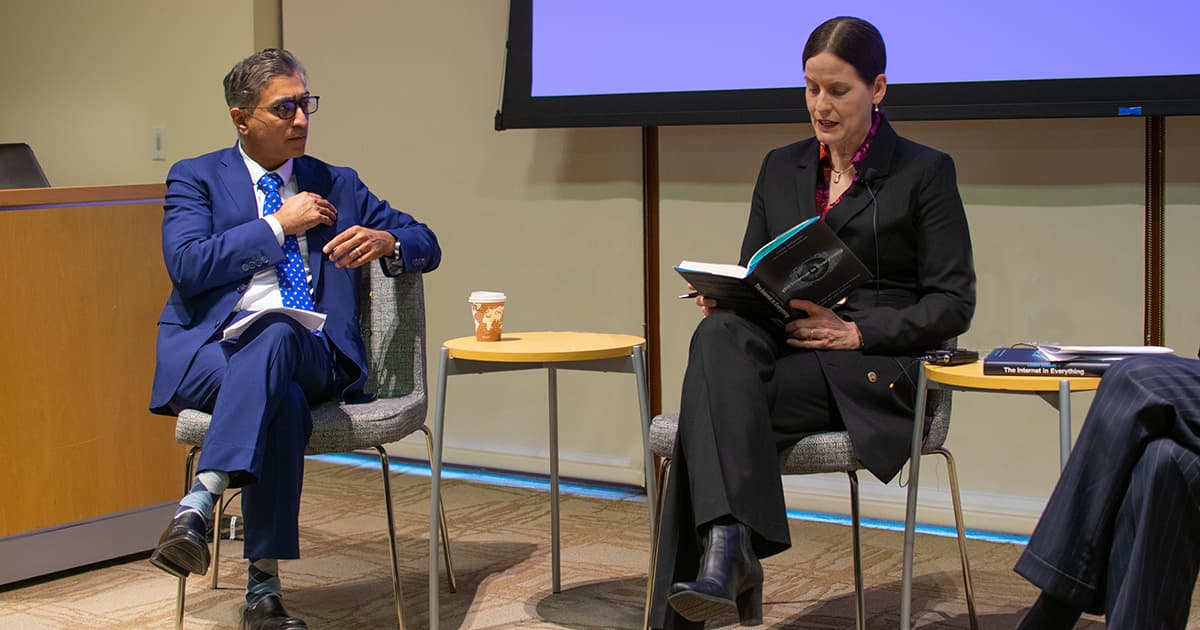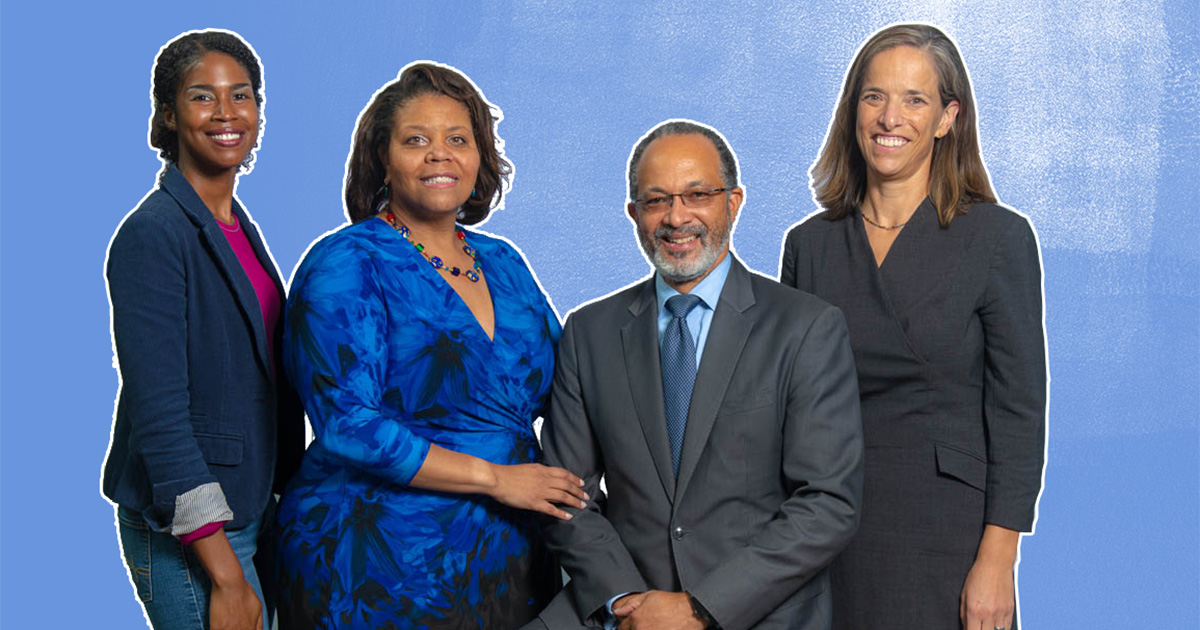Connecting the Unconnected Around the Globe

As director of the Telecommunication Development Bureau (BTD) of the International Telecommunication Union (ITU), Doreen Bogdan-Martin, SIS/MA ’91, strives to diversify the voices defining global technology policy and “connect the unconnected.”
Inspired by her four children, Bogdan-Martin led the design of Generation Connect, six regional groups around the world that engage youth to participate alongside global leaders of digital change.
“At the ITU, we talked a lot about youth, but we didn’t have specific initiatives to really help them, so we created Generation Connect. It’s all about engaging with young people, bringing young voices to the table, and working with young people to help create policies and recommendations that can ultimately benefit them,” says Bogdan-Martin.
The Biden administration nominated Bogdan-Martin, already the first woman elected to office in the ITU’s 153-year history, to become its first female secretary-general. The agency is in charge of all matters related to information and communications technologies for the United Nations.
At an Office of Sponsored Research’s September 2021 ceremony, she accepted American University’s inaugural Outstanding Technology Policy Changemaker Award, which honors global leaders who have spent their careers working to advance global technology policy.
“Doreen’s is a career that’s rooted in exciting innovations made possible by technology but driven by the purpose of employing that technology in pursuit of a more just and equitable world,” said AU president Sylvia Burwell.
Bogdan-Martin is also tackling the slow progress in gender equality in the industry. She helped develop the ITU’s internal gender task force that led to the agency’s adoption of a gender strategy and built the EQUALS Global Partnership, which works to speed up bridging the gender digital divide. With more than 100 partners, EQUALS’s three coalitions—skills, leadership, and digital access—each intersect with similar coalitions of academics and research institutes identifying existing challenges that exacerbate the digital gender gap.
“Technology has advanced at such an incredible pace, but it hasn’t advanced in a way that has been equally beneficial to everyone, and that’s a challenge,” says Bogdan-Martin.
She says COVID-19 has been a wake-up call “because it has shown, even here in the United States, what it means not to be connected. “We have 3.7 billion people out there who are not connected—the importance of digital inclusion and inclusive technology policy is more important now than ever.”


